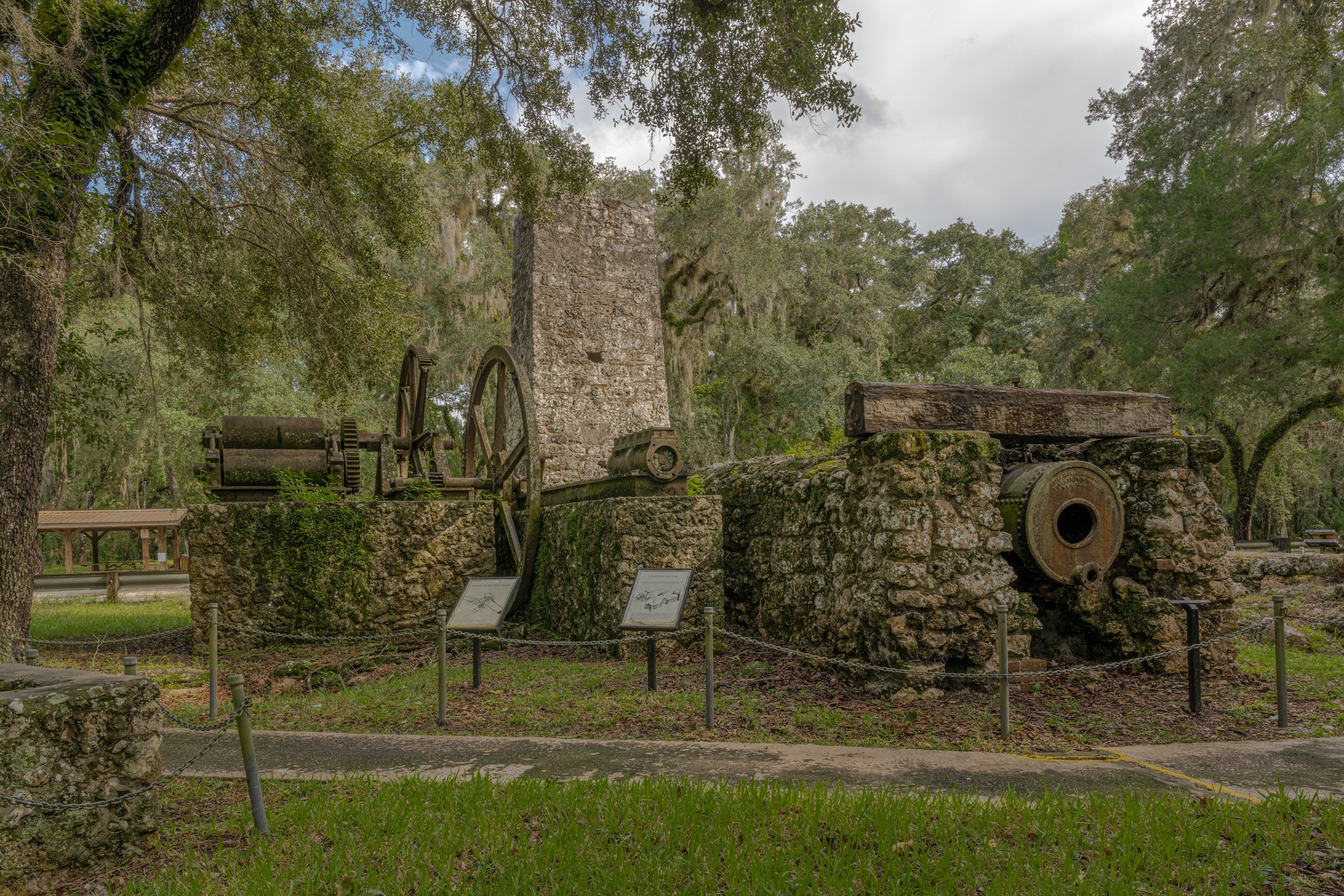
Yulee Sugar Mill
Yulee Sugar Mill was part of a thriving five thousand acre sugar plantation along the Homosassa River owned by David Levy Yulee. David Levy (1810-1886) was born in Charlotte Amalie, Saint Thomas then part of the Danish West Indies to a Moroccan father. His mother, also of Moroccan descent, was born in Saint Eustatius then part of the Netherland Antilles. His father was a successful lumber trader who came to Jacksonville in the early 1820s. In 1846 Levy officially changed his name to David Levy Yulee, adopting his father sephardic surname. Levy always lived in Fernandina Beach and is responsible for the construction of the railroad between Fernandina and Cedar Key inaugurated in 1861.
Most of the plantation around the sugar mill was deeded to Yulee by Spain during the Spanish Florida period, the time when the Spanish owned the territory. Approximately one thousand slaves operated the sugar plantation. Crops grown included among others; sugar cane, citrus, cotton, and produce. The most imposing structure of the plantation was the sugar mill, located near the Homosassa River. The mill operated for thirteen years from 1851 to 1864, producing sugar, syrup and molasses that were used to make rum. The steam-driven mill operated from 1851 to 1864 and served as a supplier of sugar products for southern troops during the Civil War. The mill was abandoned during the Civil War and Yulee's plantation home, located down the river on Tiger Tail Island, was burned. The plantation and mill never recovered from the war.
The remnants of the once-thriving steam driven sugar mill include iron gears, cane press, steam boiler, crushing machinery and some of the different size cooking kettles used to reduce the sugarcane juice to a syrup. Also remaining still standing is the forty-foot limestone masonry chimney, the well used as water source for the boiler and foundation probably of the purgery house.





